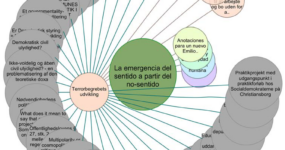 Part of the huge shadow Ant Financial casts is its appetite for global investment, but at the same time it’s making moves that are kicking off major changes to how payments are handled in its local market in China.
Part of the huge shadow Ant Financial casts is its appetite for global investment, but at the same time it’s making moves that are kicking off major changes to how payments are handled in its local market in China.
While the world waits to see how the company’s attempt to acquire U.S.-based MoneyGram will play out, one of Ant’s existing stakes in Yum China — a 2016 spinoff of Yum Brands, which owns Pizza Hut, Taco Bell and KFC — has drawn the attention of an investor who sees the potential to reshape quick serve restaurants, mobile technology and even the middle class in emerging economies.
“A lot of people don’t know Yum is a leader in digital engagement in China; it has 100 million fans on social media,” said Christopher Tsai, president and chief investment officer of Tsai Capital Corporation, a New York investor who said he has invested in Yum China. He has not invested in Ant or Alibaba.

Bloomberg News
Ant and Alibaba, the affiliated companies under Jack Ma’s umbrella, are active investors in payment startups globally, Ant quickly took a large stake in Yum China when it spun off last year.
Like many retail collaborations involving China and/or Ant, the scale is impressive. There are more than 1,600 Pizza Hut locations in China and more than 4,000 KFC locations. And Alipay, Ant’s digital wallet, has more than 450 million users. Ant and Yum did not return requests for comment by deadline.
Yum’s brands have a different identity in China than in the U.S., Tsai said. In China, it’s a symbol of the country’s emerging middle class.
“Pizza Hut is not just pizza in China,” said Tsai, who focuses on opportunities to build long-term middle class strength in addition to technology and other startups. “It’s an occasion to go out. People dine out at Pizza Hut. And Yum brands is engages with the younger demographics on social and mobile with payments, marketing and ordering.”
Pizza Hut and KFC are both adopters of emerging technology. Pizza Hut has deployed Masterpass-linked robot waiters in Asia and has dabbled in order ahead systems built into connected cars. KFC adopted Apple Pay quickly, and more recently added technology in China that uses facial recognition to identify customers and suggest repeat orders.
But beyond these tangible surface benefits,Yum’s Ant-driven expansion has a powerful underlying potential to drive a cultural change, according to Tsai. Yum China’s cashless payment volume has grown quickly, he said, now at a pace of more than $1 billion per year.
In many emerging markets, the commerce functionality is going from a near total cash-based environment to cashless in just a few years, according to Thad Peterson, a senior analyst at Aite Group.
“The speed of adoption is incredible,” he said. “Anything that adds to their mobile device strengthens the value of the device in general.”
Because China leapfrogged the landline infrastructure by going straight to mobile devices, any digital network that connects consumers to merchants for coupons, store hours and advertising is very strong, said Michael Moeser, director of payments for Javelin Strategy & Research.
“Now adding the transaction capability can jumpstart the economy by jumping the need to add legacy payment infrastructure,” Moeser said. “We see this today in India with Paytm. For Yum, which has such a dedicated following in China and other overseas market, adding transaction capabilities could clearly drive significant purchase volume especially if the payment is with Alipay or Paytm.”
[“Source-paymentssource”]
| M | T | W | T | F | S | S |
|---|---|---|---|---|---|---|
| 1 | 2 | 3 | 4 | 5 | 6 | |
| 7 | 8 | 9 | 10 | 11 | 12 | 13 |
| 14 | 15 | 16 | 17 | 18 | 19 | 20 |
| 21 | 22 | 23 | 24 | 25 | 26 | 27 |
| 28 | 29 | 30 | 31 | |||



























